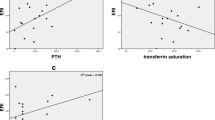Abstract
The long-term effects of Adriamycin (ADR), daunomycin (DMN) and cis-dichlorodiammine platinum (II) (DDP) on the ability of murine renal tubular epithelium and erythropoiesis to respond to an acute proliferative stress was investigated. Folic acid (FA) and acute anaemia induced by bleeding were used as acute proliferative stimuli for renal-tubule epithelium and erythropoiesis respectively. The ability of these normal cell-renewal systems to mount a regenerative proliferative response was evaluated by radioisotopic, morphological and gravimetric techniques 4 months after drug treatment. The results indicate that pretreatment with these agents produce a long-lasting reduction in the ability of these cell-renewal systems to mount regenerative proliferation. In the kidney, the ability to respond to FA was most severely compromised by ADR and DDP, whereas in the erythropoietic system all 3 agents induced a long-lasting proliferative defect.
Similar content being viewed by others
Rights and permissions
About this article
Cite this article
Braunschweiger, P., Kovacs, C. & Schenken, L. Renal and haemopoietic proliferative defects as a delayed consequence of cis-platin, adriamycin and daunomycin treatments. Br J Cancer 45, 421–428 (1982). https://doi.org/10.1038/bjc.1982.70
Issue Date:
DOI: https://doi.org/10.1038/bjc.1982.70
- Springer Nature Limited




